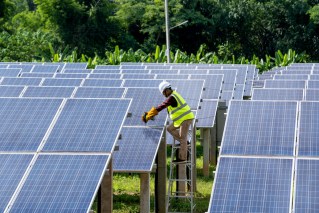Younger Australians extend university studies as job market takes a hit


The pandemic has pushed youth unemployment to 15.6 per cent. Photo: TND
The end of exams is usually a promising time for graduating university students, hopeful of beginning their careers in the new year.
But 2020 is not a normal year and the global pandemic has seen the jobs market tank, particularly for young people.
The bleak employment outlook has prompted some young people to stay in the education system for longer than previously planned.
Tiana Sixsmith, 21, was hoping to finish her anthropology and human rights degree at Monash University this year, before pursuing a government policy graduate position.
But after COVID-19 hit, and graduate positions were either cancelled or postponed, she dropped to part-time and extended her studies until the end of 2021.
“It has definitely been hard to get graduate roles,” Ms Sixsmith said.
“It’s sad but I’m pretty hopeful now (of finding a job after graduating).”
Ms Sixsmith, who lives in a share house in Melbourne, says some of her fellow university students have also decided to extend their studies and take on either honours or masters degrees.
“There definitely is a lot of increased stress knowing that it’s quite a bit more competitive and probably a lot harder to get those grad roles.”

The youth unemployment rate is now at 15.6 per cent. Photo: AAP
According to the Australian Bureau of Statistics, more than one in 10 young people aged 15 to 24 are jobless, with youth unemployment last month climbing 1 percentage point to 15.6 per cent.
Youth unemployment in October was more than 3 percentage points higher than the same time last year.
APAC economist for jobs site Indeed, Callam Pickering, says it’s an incredibly difficult jobs market for graduates to break into.
He expects many younger Australians to stay at university for longer, which is what happened after the global financial crisis.
“Younger people are doing it a little bit harder than older Australians and I think that’s a trend likely to continue,” he said.
“Historically, younger people have been hardest hit by recessions, and employment outcomes for younger people tend to take a lot longer to fully recover.”
Tweet from @CallamPickering
The federal government estimates its JobMaker hiring credit, designed to tackle youth unemployment, will support up to 450,000 jobs.
Under the scheme, the government chips in $200 a week for the wages of workers under 29 and $100 for those aged 30 to 35.
But social and seniors groups fear JobMaker will encourage employers to discriminate against older job seekers, and the Australian Council of Social Service called for the scheme to cover all unemployed workers, including those over 35 who had been jobless for more than a year.
Peter Hurley, a policy fellow at education the think tank Mitchell Institute, says the initial pandemic shock to the jobs market hit the retail and hospitality sectors the hardest, but the next wave will affect different types of jobs over the next few years and create “a bottleneck effect”.
University graduates who fail to access higher-level jobs will start to take roles at lower levels, which will then leave fewer positions for people who are less qualified, he said.
“One of the things you want, particularly for young people, is to keep them engaged.
“If they’re not in work, they’re not in education and they become long-term unemployed for a period of time, it’s associated with those terrible outcomes (like poor health and precarious housing situations).”
Meanwhile, there has been a surge in demand from local school leavers for tertiary education, as many students who wanted to take a gap year to travel or work are now planning to go straight to university.
The Universities Admission Centres handles the majority of school leaver applications for universities in NSW and the ACT.
By the end of October, there was already over 2000 more applications than there was by the end of November last year, according to UAC figures.








